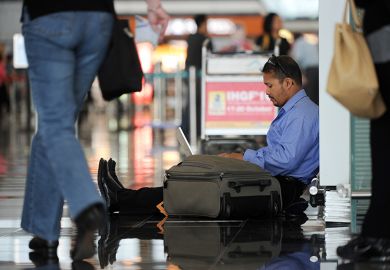The number of international students taking science, technology, engineering or maths (STEM) subjects has suffered more than those taking other disciplines over the last two years, according to civil servants.
Giving evidence today to the House of Lords Science and Technology Committee, officials from the Department for Business, Innovation and Skills said that this was down to an “India effect” – meaning that Indian students, whose numbers have declined particularly sharply, had been disproportionately likely to take STEM subjects.
Andrew Ray, deputy director for higher education analysis at BIS, explained that in 2011-12, the first year in which new coalition immigration policies began to come into force, there was a larger reduction in international STEM than non-STEM students.
In particular, there had been a 25 per cent drop in entrants to computer science courses in 2011-12, and another 11 per cent drop in 2012-13.
In 2012-13, the difference was “less pronounced”, he said, while overall numbers were roughly flat over these two years.
During this period, the numbers coming to the UK from India and Pakistan have fallen significantly, but Chinese student numbers have continued to grow.
Mr Ray explained that the three most popular subject areas for Indian students were engineering and technology, computer science, and subjects allied to medicine.
The reduction in international STEM students was therefore likely to be due to “an India effect that’s particularly affecting the STEM results,” he said.
Asked to explain why there had been such a drop in Indian students, Martin Williams, director of the international education industrial strategy at BIS, said that the country’s student market was “a volatile one”.
The rupee had been low in value against the pound, he added, which would contribute to the costs of studying in the UK.
He also speculated that the post study work visa – which, withdrawn in 2012, had given overseas graduates the automatic right to work in the UK for two years – might have been more attractive to Indian students than Chinese.
At the beginning of the session, the committee chairman Lord Krebs of Wytham thanked the BIS officials for attending – but said their counterparts from the Home Office had refused to give evidence “despite repeated requests” from the committee.
Register to continue
Why register?
- Registration is free and only takes a moment
- Once registered, you can read 3 articles a month
- Sign up for our newsletter
Subscribe
Or subscribe for unlimited access to:
- Unlimited access to news, views, insights & reviews
- Digital editions
- Digital access to THE’s university and college rankings analysis
Already registered or a current subscriber? Login




